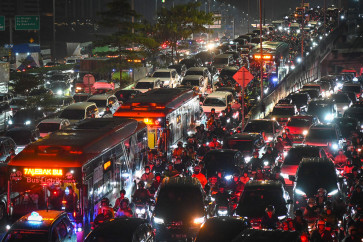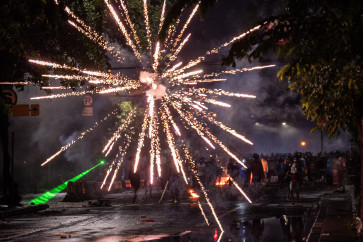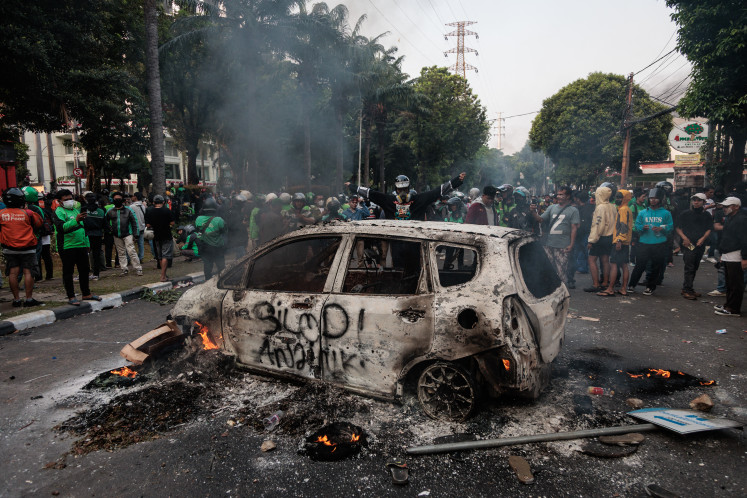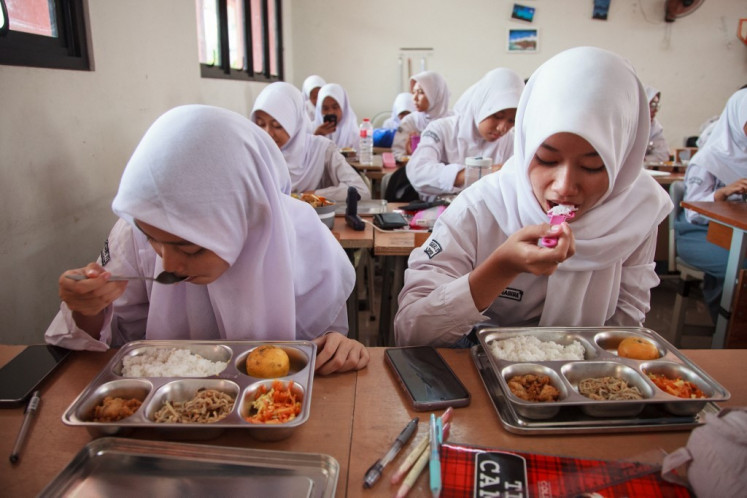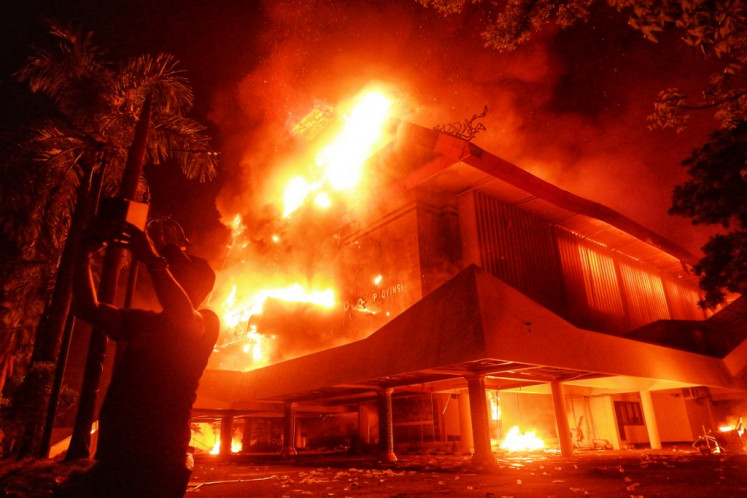Popular Reads
Top Results
Can't find what you're looking for?
View all search resultsPopular Reads
Top Results
Can't find what you're looking for?
View all search resultsRacial attacks on Papuans hurts Indonesian solidarity
Statements made by a few Indonesian army generals in the past reflected an intention to remove Papuans from their native land.
Change text size
Gift Premium Articles
to Anyone
W
hatever lens one might use to view the recent racial attack on former National Commission on Human Rights member Natalius Pigai for his challenge to the national vaccination against COVID-19, it emerged out of deep problems, like from the infected wounds in the relationship between Papuans and other Indonesians.
Ambroncius Nababan, former chairman of a volunteer group supporting President Joko Widodo, displayed racial slurs and images on his Facebook account apparently to retaliate Pigai’s earlier comment that Indonesian citizens had the constitutional right to reject vaccines. Pigai comes from Papua, where some of the most horrific human rights violations have been committed by security forces.
Often, we think that racism is inevitable due to cultural differences. While this is often the case, racism against Papuans is uniquely different because it is almost exclusively based on the color of their skin.
Racially charged incidents are pervasive have spread into sports as well, like when high-profile black soccer players in Europe, or indigenous players in Australia are mocked with monkey chanting or banana eating. It is their skin color that is at the forefront of the harassment, not their talents, nor their inalienable rights to be human and belong to this planet.
Most of us are aware that in the world of politics, all kinds of mockery and harassment are thrown about by opposing parties. In most cases, these are tolerable (in most democratic countries). But racially denigrating imagery and language runs deeper than the usual personal attacks, opening deep wounds in the body of a nation and a race of people that is systematically oppressed largely because of their race and ethnicity.
For Nababan, his comments may have been inconsequential in his eyes, and a simple apology might do the trick to heal the situation. But for Papuans, these types of comments continue to rub salt into old and fresh wounds, and an act of justice is needed to begin the healing process.
In fact, statements made by a few Indonesian army generals in the past reflected an intention to remove Papuans from their native land. In 1963, Ali Moertopo said Papuans should be transferred to the moon; in 2016, Luhut Pandjaitan said Papuans should be transferred to the Pacific; in 2019, Papuan students were called “monkeys” and told to “go home” and in 2021, Hendropriyono said in a video interview that 2 million Papuans should be transferred to Manado.
Such views only convinced Papuans to be skeptical of any policy introduced by Jakarta for them. Nababan’s racist comments align with the beliefs of the Indonesian Military’s views of Papuans, therefore it does not seem problematic to them.
Psychologically, these kinds of racial slurs create further trauma for Papuans, as many other Indonesians continue to denigrate the humanity of Papuans. Conversely, this traumatic incident will serve as a platform for Papuan’s collective cry for independence from Indonesia. It will unite diverse Papuan groups, and they will galvanize support from across the black and nonblack world.
If anything, outraged and angry Papuans who set buildings on fire across Papua after Surabaya’s racial-related incident in August 2019 should have been a significant message to Indonesia on how deep this racist scar has been cut.
It is no longer only Papuans who stand in a fight against racism here – many other Indonesians are also standing in solidarity with Papuans. In response to the racist attack on Pigai, the Association of Batak Community in Papua (an ethnic group from North Sumatra, which Nababan belongs to) condemned Nababan for his racist social media post and urged authorities to uphold the law against him.
Despite these condemnations against racism in Indonesia, ordinary Papuans still suffer from racism without these acts being broadcast by the media. You simply won’t see it make headline news. Nevertheless, cases like Pigai’s will spotlight the systematic racism that Papuans face every day. It is a deep wound on the Papuan body and spirit, caused by decades of neglect, abuse and inhumane treatment, enabled by the complicity of the United Nations and Western governments.
To address these old wounds, a mere apology, such as that expressed by Nababan, cannot fix the underlying issues and is superficial at best.
Papuans need justice. Although Papuans have not yet achieved justice through full independence, Jakarta can still help deliver justice to Papuans by how sincerely they handle people like Nababan. It is vital that Indonesian leaders do their job thoroughly and professionally, not just for Papuans, but for the integrity of the country.
Former Constitutional Court chief Hamdan Zoelva alluded that racism was not an Indonesian cultural value. If there is any truth to his words, why then are Papuans still treated as less than human? It seems negligible whether Nababan’s racial slur was merely harmless, spontaneous commentary or the tip of the iceberg of a much larger evil pervasive in the treatment of Papuans.
Unless action is taken and justice is restored, the disease that continues to thwart the relationship between Papua and the rest of Indonesia will remain alive and thriving. Papuans are waiting for justice to be delivered for the denigrating, racist attack on Pigai and the Melanesian people of West Papua.
***
The writer is a Papuan academic with a masters of applied anthropology and participatory development from the Australian National University.

![A mural shows two Papuans with the words: “If we are monkeys, don’t force monkeys to raise the white and red [Indonesian] flag. Stop racism.” The mural was displayed on a road connecting Depok and Bogor, West Java. The mural refers to an incident last year in Surabaya, East Java, in which a Papuan student was vilified and called a “monkey”. The incident led to a string of antiracism protests.](https://img.jakpost.net/c/2020/08/17/2020_08_17_102525_1597635889._large.jpg)
